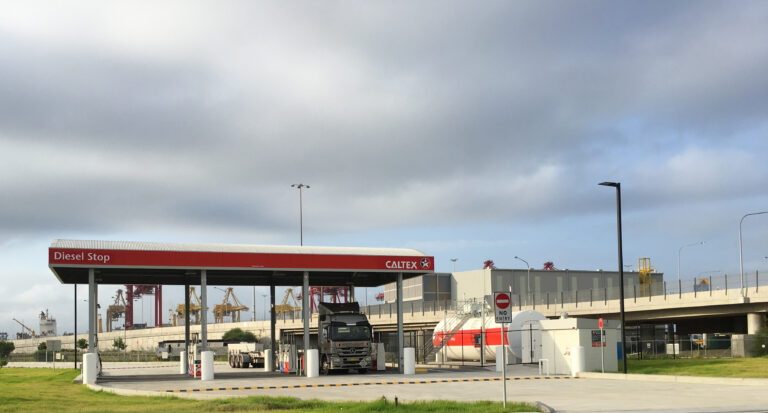– By Caroline Falls –
Delivery fleets, including heavily vehicle runs around the country bringing medical and food supplies, have been valued as an essential service during the COVID-19 pandemic all over the world.
In the US, transportation intelligence company SmartDrive said drivers, dispatchers, fleet managers and others in trucking are doing “critically important work” and going to “heroic lengths” to ensure medical supplies are delivered to hospitals, consumer goods are stocked on shelves, and freight remains on the move.
In Australia, the Australian Trucking Association worked with government to bring about practical new measures to ensure truck drivers could remain on the road and that roadhouses remained open and safe for truck drivers to eat, toilet and rest on their long journeys across state boundaries.
The Queensland assistant Commissioner Mike Condon said the trucking industry had been fantastic, and understood the necessity of lockdown directives, according to a report in the Katherine Times. “We had to find a balance between enabling (truck drivers) to travel the distances and rest,” he said.
“We talked right across all the operators to permit them to shower and have a decent meal. Some of the designs of the service stations are very old so you might find some where you’ve got to walk through the dining room to get to the toilets.”
The Australian Trucking Association said thank you to the government for listening to their concerns and working closely with the ATA and its members.
“We have not won every argument, but we have achieved great outcomes for our industry on issues including loan guarantees, the 50 per cent investment allowance, the eligibility of owner drivers for support and the reopening of truck stops and roadhouses,” ATA’s immediate past chair Geoff Crouch said in an ATA press release.
“The government is listening and working closely with the ATA and our members,” he said.
Not all is running smoothly. In early May, the ATA called on construction products maker Sika Australia to open its facilities to truck drivers collecting pallets from their warehouses. The ATA and its member associations collectively represent the 50,000 businesses and 200,000 people in the Australian trucking industry. The offensive against Sika is part of ATA’s Keep them Open campaign, which urges businesses across the country to ensure their facilities are accessible to truck drivers.
The ATA found a need to invoke their Keep them Open campaign again when calling upon the NSW Government Premier Gladys Berejiklian to make the opening of truck driver facilities a priority as she announced plans for the reopening of businesses.
ATA CEO Ben Maquire noticed critical facilities for truck drivers were closed and called on Berejiklian to fix it. He’d been driving along the Hume Highway one May day when he saw a Transport for NSW sign posting that the toilet facilities were not being serviced. “How can we possibly expect businesses to reopen and ‘have a go’, if the trucks that carry their supplies can’t get the basic support needed to deliver goods?
“Truck drivers have no other choice but to use these facilities, and to see them closed is unacceptable,” said Maquire.
Mayor the Dubbo Region Ben Shields was an early adopter, reopening toilet facilities in the region in April.
“Council has listened to the concerns of the transport industry on this issue and it is important we make restrooms available for truck drivers. They have an important role to play in ensuring our region gets through the pandemic and we need to assist them with that,” Shields said on the ATA website.
What Shields said too suggests a tribute of sorts to truck drivers. We rely on them. Or in Maquire’s words: “Trucking provides a critical role in keeping local communities supplied and enabling economic activity.”







